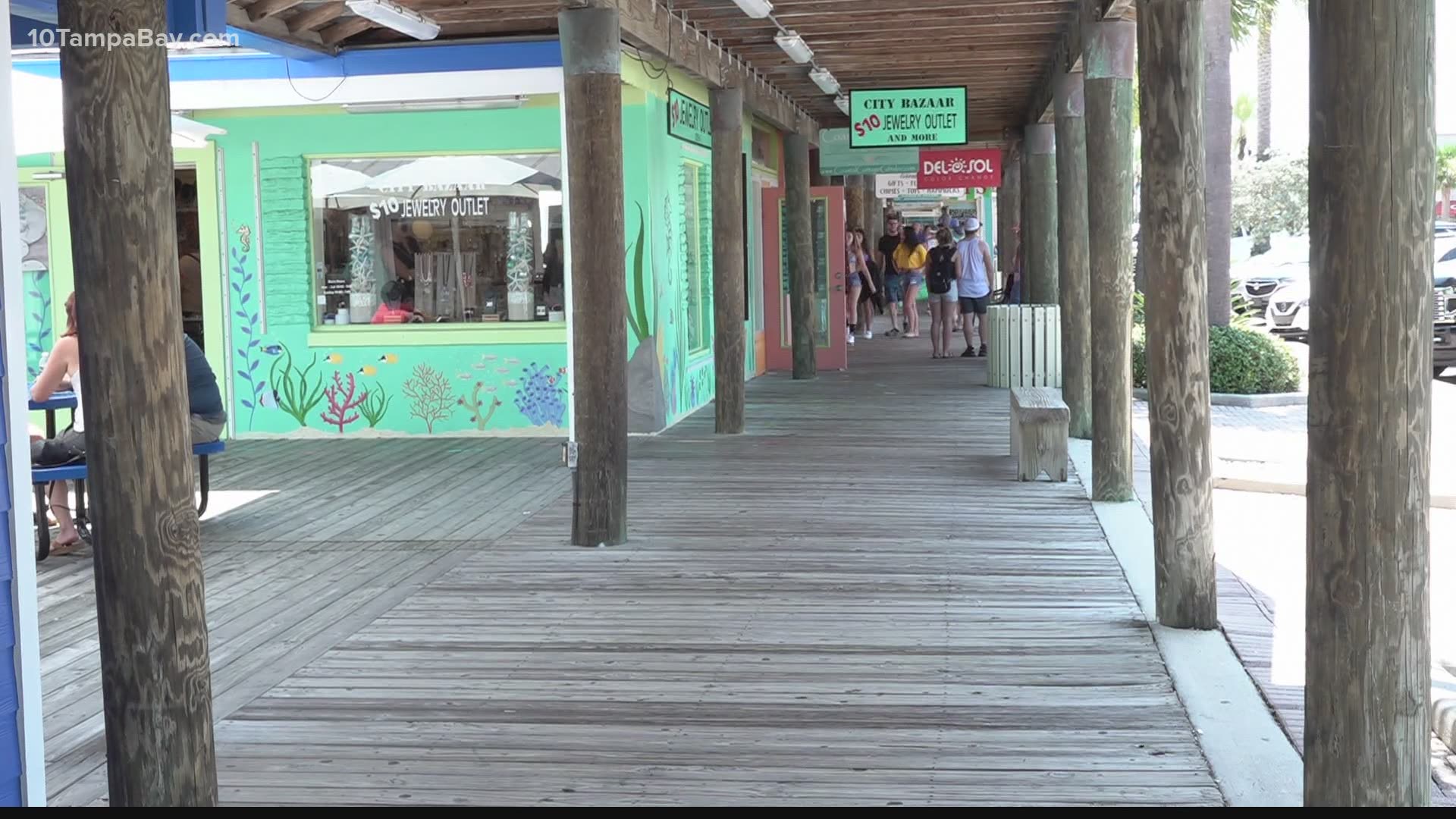ST. PETERSBURG, Fla. — For weeks now, the Tampa Bay area has felt the effects of red tide in its waterways and some local leaders are saying the amount of dead sea life continues to pile up.
As of Monday afternoon, 1,624 tons of marine life have been collected in Pinellas County. That's more than 3 million pounds.
Daily samples from the Florida Fish and Wildlife Conservation Commission show red tide continues to plague the bay area, particularly along the coast of Pinellas County. The most recent samples show high levels of the harmful algae Karenia brevis near Pass-A-Grille Beach, Treasure Island Beach and Madiera Beach.
To report a fish kill to the Florida Fish and Wildlife Conservation Commission (FWC), call the hotline at 800-636-0511. For more resources, click here.
You can also find different resources to check beach conditions here.
Red tide is one of the water's deadliest enemies, and it occurs nearly every summer along Florida’s Gulf Coast. Some years, however, it's worse than others.
According to the National Oceanic and Atmospheric Administration, "red tide" is a harmful algal bloom or HAB, that is created when plants in the sea grow out of control and cause harmful toxins. Those toxins can have negative impacts on people, marine mammals, birds, fish and shellfish.
In Florida and the Gulf of Mexico, the species responsible for most red tides is called Karenia brevis, and is often abbreviated as K. brevis.
NOAA scientists say that although it's rare, red tide can cause human illness and in some rare cases be deadly.
Experts at Florida Fish and Wildlife Conservation Commission say the toxic chemicals that come from red tide affect both marine organisms and humans.
Karenia brevis produces brevetoxins that can affect the central nervous system of fish and other vertebrates, which causes these animals to die.
- 'It’s been an honor': Chief Brian Dugan announces his retirement from Tampa Police Department
- Carlie Brucia's killer, Joseph Smith, dies in prison
- Deputies: Shooter, 1 other injured in Spring Hill shooting
- Gov. DeSantis, DEO sued over Florida's early end to additional federal unemployment benefits
- Red tide at the beach: See the latest conditions
- A Frank Conversation: New podcast explores race, religion, politics and more
►Breaking news and weather alerts: Get the free 10 Tampa Bay app
►Stay In the Know! Sign up now for the Brightside Blend Newsletter

